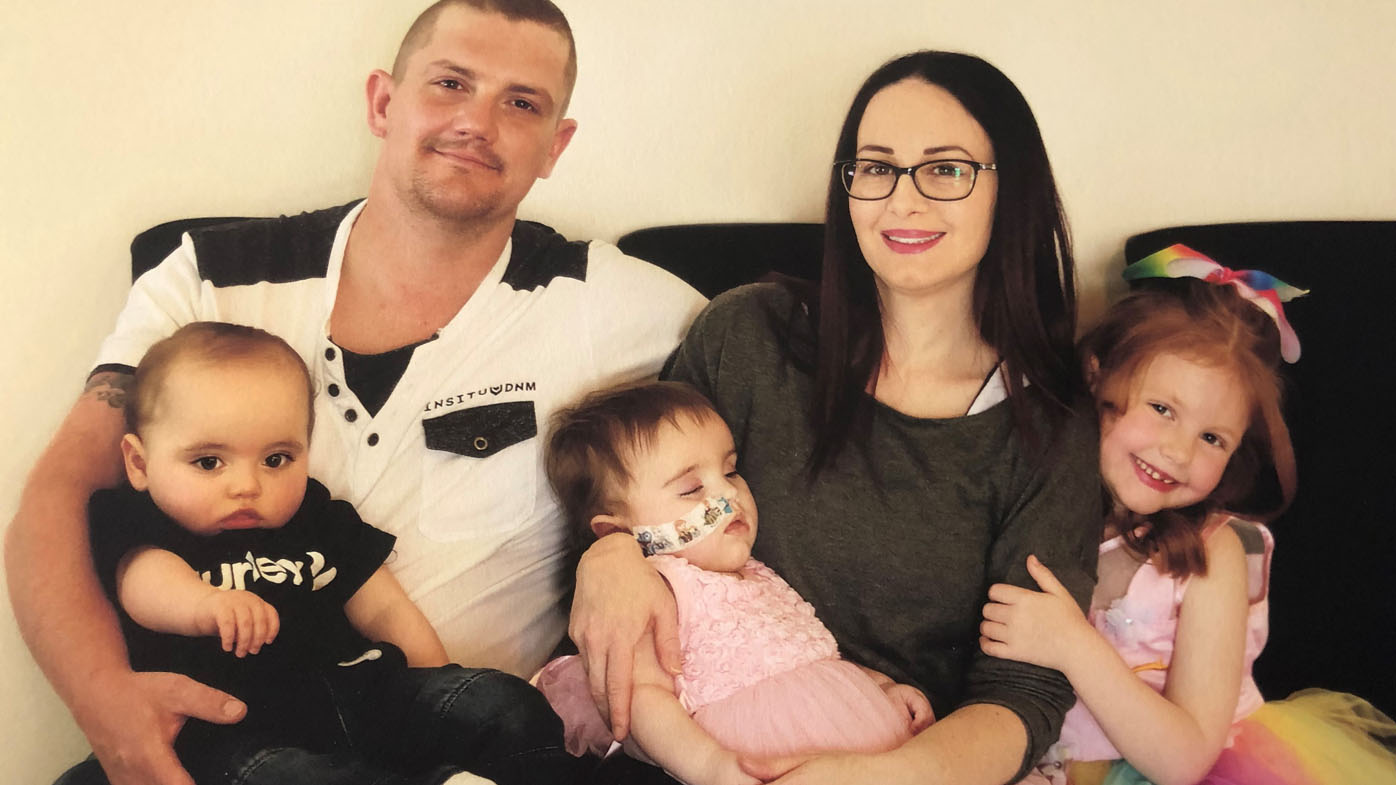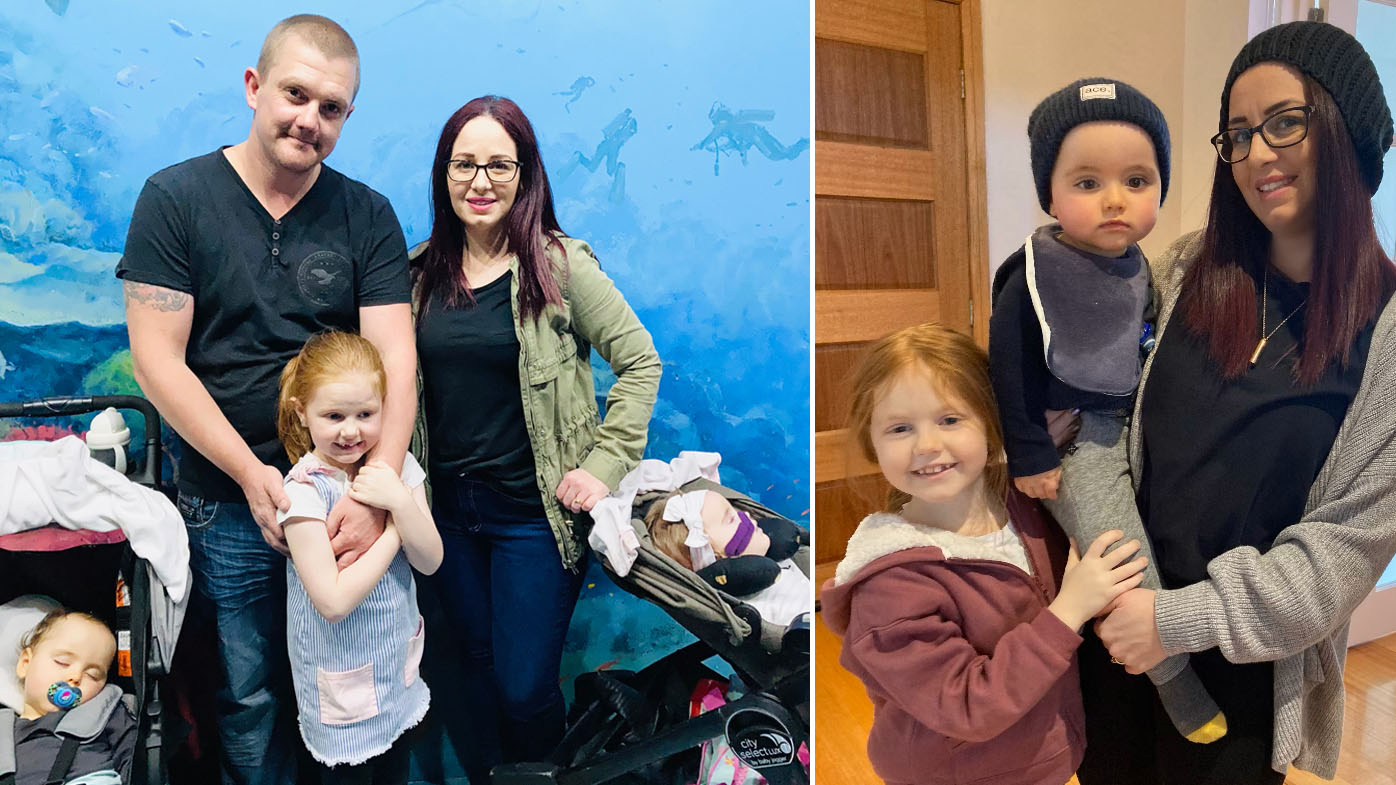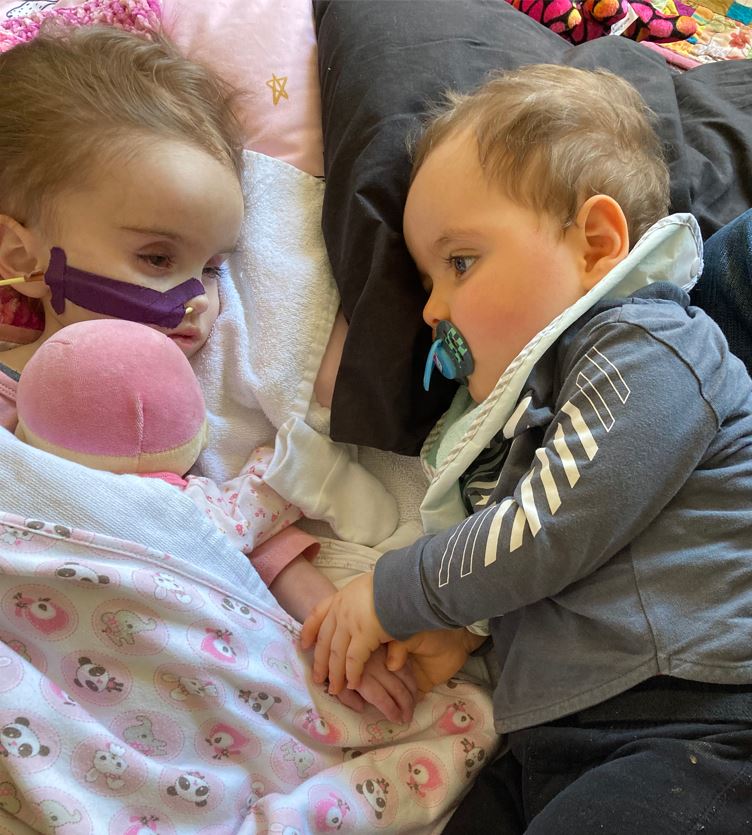When Victorian couple Louise and Raymond Pryde first set eyes on their beautiful newborn twins, they believed they were lucky enough to have two healthy babies after a long battle with IVF.
But in May this year, their 19-month-old daughter Aria died of a rare genetic condition called Vanishing White Matter Disease, a form of Leukodystrophy.
Just months before her death, Aria's twin brother Axel was diagnosed with an even rarer genetic disease, IQSEC2, for which he requires 24-hour care.
READ MORE: Parents of first Aussie diagnosed with rare disease to crowdsource trial

It's unlikely he'll ever walk, talk or feed himself – and he suffers between 15 to 20 seizures a day.
"It's just gut-wrenching," Mrs Pryde said.
"We keep on saying to this day, what did we do so wrong?
"What have we done wrong in a past life for this to have happened, having twins with two completely rare genetic diseases?"
The first signs of Aria's illness appeared at nine months old when she was suddenly unable to sit or hold her head up anymore.
Shortly after her first birthday, she was given just weeks to live and discharged from hospital.
She died seven months later.
Unlike Aria's condition, Axel's isn't terminal – but it is untreatable.
LIVE UPDATES: Thousands of Qantas workers stood down

READ MORE: COVID-19 makes telehealth mainstream, but it will be needed long after
His parents are trying to raise awareness for genetic diseases in the hope it will lead to research that may someday help their son live a better life.
On Friday, Axel will be an ambassador for Jeans for Genes Day, which supports the work of scientists at the Children's Medical Research Institute.
"I'm not going to expect that he is going to have a normal life, I know that's not on the cards," Mrs Pryde said.
"But something other than the uncertainty we've been faced with.
"We are trying to spread the word, to see if there's anything we can do to help him later on in life in dealing with his condition, whether or not we can get him to walk or communicate with us in certain ways."

While Aria's and Axel's conditions are extremely rare, around 1 in 20 children in Australia is affected by a genetic disease or birth defect.
There are around 6000 genetic diseases, which makes it extremely difficult to test for many.
But experts say once a treatment is found for one disease it can often be applied for many more.
Children's Medical Research Institute Director Roger Reddel said the pandemic has brought home for many Australians why research is so important.
"For many people, the experience of living through a pandemic during the last 18 months has really opened their eyes to the power of research to change the world," Professor Reddel said.
"Now we are asking Australians to see the potential of our research to change the world for children living with genetic diseases."
All donations made on Thursday August 5 and Friday August 6 will be doubled by a donor.
Visit JeansforGenes.org.au
